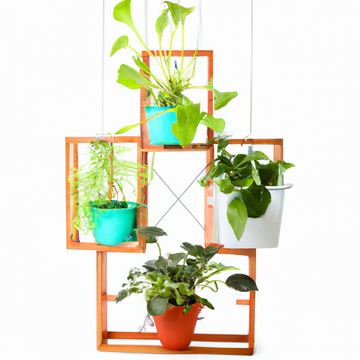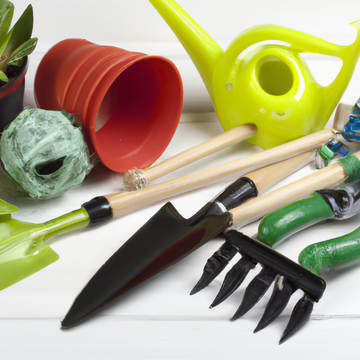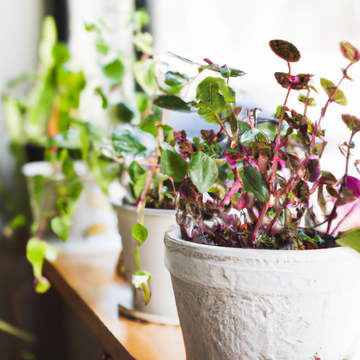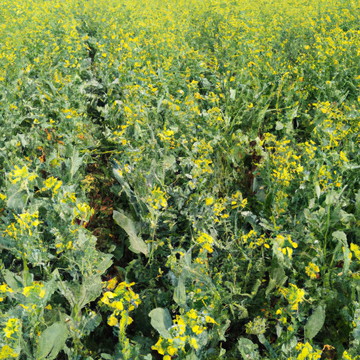Gardening Blog
6 Essential Tips for Growing a Thriving Vegetable Garden
by GOLDDUST- Rethink&Revive on Apr 20, 2023
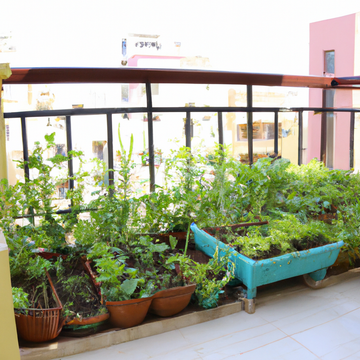
Are you dreaming of a thriving vegetable garden but don't know where to begin? Growing your own vegetables is not only rewarding, but it's also a great way to save money and eat healthier. However, starting a vegetable garden can seem overwhelming with so many factors to consider, from soil quality to pest control. But fear not! In this blog post, we'll provide you with six essential tips for growing a flourishing vegetable garden that will have your neighbors green with envy. So grab your grow bags and neem oil because it's time to get started!
Planning Your Garden
Planning your garden is an essential step in creating a successful vegetable garden. Before you start digging and planting, take some time to consider what you want from your garden. First, think about the size of your garden and how much space you have available. If you're limited on space, consider using raised beds or containers.
Next, think about what vegetables you want to grow. Consider which plants are suitable for your climate and soil type. It's also helpful to choose vegetables that your family enjoys eating.
Another important factor is determining when to plant each crop. Some crops prefer cooler weather while others thrive in warmer temperatures, so it's important to research the best planting times for each vegetable.
Additionally, plan out where each crop will be planted within the garden based on their sun requirements and water needs. Be sure not to overcrowd plants as this can lead to disease and pest problems.
By taking these factors into consideration during the planning stage of your vegetable garden, you'll set yourself up for success in growing healthy and delicious produce all season long!
Choosing the Right Location
Choosing the right location is crucial for growing a thriving vegetable garden. Before starting your garden, take some time to observe your surroundings and evaluate different areas of your yard or property.
Firstly, look for an area that receives plenty of sunlight throughout the day. Most vegetables need at least six hours of direct sunlight to grow and produce quality yields. A spot that gets full sun exposure will also help prevent diseases caused by dampness and humidity.
Secondly, consider soil quality. The soil should be rich in nutrients such as nitrogen, phosphorus, and potassium. You can test the soil pH level using a home testing kit or send it to a local lab for professional analysis.
Thirdly, ensure proper drainage to avoid waterlogging which can harm roots and promote fungal growth in plants. Choose an area with good drainage or amend the soil if necessary by adding organic matter like compost or aged manure.
Choose an accessible location close enough to your house so you won't have trouble carrying tools and watering cans back and forth daily.
By following these tips when choosing your garden's location, you are setting yourself up for success in growing healthy vegetables all season long!
Selecting the Best Plants
Selecting the best plants for your vegetable garden is crucial to ensure a bountiful harvest. When choosing what to plant, consider your climate, soil type and available space.
If you live in an area with hot summers or cold winters, opt for vegetables that can tolerate these conditions. For example, tomatoes thrive in warm weather while kale and broccoli prefer cooler temperatures.
Soil type also plays a significant role in determining which plants will grow well in your garden. Some vegetables like carrots and potatoes do best in loose soil while others such as beets and spinach prefer well-drained soil.
Additionally, take into account the amount of sunlight your garden receives when selecting plants. Most vegetables require at least six hours of direct sunlight daily to flourish.
It's also important to choose disease-resistant varieties of plants whenever possible. This will help reduce the risk of pests or diseases attacking your crops throughout the growing season.
By carefully considering these factors when selecting which plants to grow in your vegetable garden, you'll set yourself up for success come harvest time.
Caring for Your Garden
Caring for your vegetable garden is an essential aspect of ensuring that you have healthy plants and a bountiful harvest. One important tip is to water your plants regularly, especially during hot summer months. However, be mindful not to overwater them as it can lead to root rot and other diseases.
Another vital aspect of caring for your garden is pruning. Pruning helps remove dead or damaged leaves and branches, allowing the plant to channel its energy into producing new growth. It also helps improve air circulation in the garden, reducing the risk of fungal diseases.
Fertilizing your plants is another crucial step in caring for your vegetable garden. Using organic fertilizers like neem cake powder or mustard cake fertilizer ensures that you nourish your plants without harming the environment or compromising soil quality.
Protecting your plants from pests and disease is also critical in maintaining a thriving vegetable garden. Using natural remedies such as neem oil for plants or liquid seaweed fertilizer can help deter common pests while boosting plant growth.
Don't forget about weeding! Regularly removing weeds not only keeps your garden looking neat but also prevents competition between weeds and vegetables for nutrients and water.
By following these simple tips on caring for a vegetable garden, you'll be well on your way to growing healthy produce all season long!
Harvesting Your Vegetables
Harvesting your vegetables is the most satisfying part of growing a garden. It's exciting and rewarding to see your hard work come to fruition, and there's nothing quite like the taste of freshly picked produce.
When it comes to harvesting, timing is everything. You want to pick your veggies at just the right moment when they're ripe and full of flavor. This means checking on them regularly and keeping an eye out for any signs that they're ready to be harvested.
For some vegetables, like tomatoes or peppers, you can tell that they're ready by their color - they should be bright and vibrant. Others, like carrots or potatoes, require a bit more digging around in the soil to check their size.
It's important not to wait too long before harvesting your veggies because overripe produce can lose its texture and flavor quickly. Plus, leaving it on the vine or in the ground for too long can attract pests or diseases that could harm other plants in your garden.
Once you've picked your vegetables, store them properly so that they stay fresh as long as possible. Some fruits and veggies need refrigeration while others do better at room temperature - knowing how each type prefers will help ensure their longevity.
Harvesting your vegetables is truly one of gardening's greatest joys – enjoy every single bite!
Common Garden Pests and Diseases
One of the most significant challenges for any gardener is dealing with pests and diseases. These unwanted organisms can quickly spread throughout your garden, destroying plants and ruining all your hard work.
Pests such as aphids, mites, whiteflies, and caterpillars are some of the most common problems faced by vegetable gardeners. They feed on plant sap or leaves causing damage to the foliage or decimating entire crops.
Diseases like powdery mildew, blight, rusts also pose a threat to gardens. They often spread through water droplets splashing from infected plants or soil-borne pathogens attacking weak roots.
Prevention is always better than cure when it comes to pests and diseases in the garden. One effective way is companion planting - growing beneficial flowers around vegetables that repel bad bugs naturally while attracting pollinators.
Another method is using organic pest control solutions like neem oil for plants which works miracles in killing insects without harming beneficial ones.
Fungal diseases can be prevented by using organic fertilizers such as mustard cake fertilizer which enhances soil fertility thereby strengthening plant resistance against fungal attacks. Neem cake powder also helps prevent fungal infections while acting as an excellent source of nutrition for healthy plant growth.
To sum up, keeping a close eye on your garden regularly will help you spot issues early so that you can address them swiftly before they become severe problems affecting everything in their path ultimately!
Conclusion
Growing a thriving vegetable garden requires planning, dedication, and knowledge of best practices. By following the tips outlined in this article - planning your garden, choosing the right location, selecting the best plants for your area and needs, caring for your garden regularly with organic fertilizers such as neem cake powder or mustard cake fertilizer along with liquid seaweed which can be used as plant growth booster and using natural pest control methods like neem oil for plants - you'll be well on your way to reaping a bountiful harvest of fresh vegetables that are both healthy and delicious.
With just a little effort and patience throughout the growing season, you can enjoy homegrown produce that's sure to impress family and friends alike. So get out there today and start creating your dream vegetable garden!
Tags:

